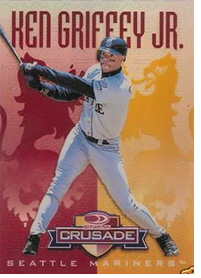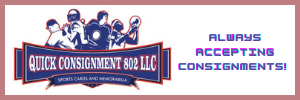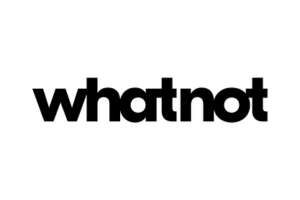
Law of Cards: Panini Launches Crusade at Leaf Over Valiant Design
At the Industry Summit, I spoke to industry members about the current state of litigation in the hobby. One of the themes I raised was the under-utilization of copyrights. More companies should have them, and sue on them, because 1) they are easy to obtain (just fill out a form and attach a copy of the work), 2) it does not take long to get a copyright registration (months) and 3) they are inexpensive (between $35-65). Add in the fact that a possible outcome of a copyright lawsuit is an injunction (legal translation: an order preventing future sales of the infringing product), and there's little reason why companies should not have large copyright portfolios.
Now, it's likely not in response to my talk (as I recall, Panini was not in attendance), but Panini is the first company to jump on the copyright lawsuit bandwagon.
On May 3, Panini sued Leaf for copyright infringement, alleging that Leaf's Valiant design infringes copyrights it alleges to have in Donruss' Crusade products.
According to the complaint, Pinnacle Brands Inc. came up with the Crusade design (pictured below) in 1998, and then used it three products: 1998 Donruss Baseball, 1998 Rookies & Stars Baseball Update and 1998 Rookies & Stars Football.

Panini alleges it now owns the copyright(s) in the Crusade design and that Leaf's Valiant design is "substantially similar," and thus infringes.
Comparing the Crusade card with Leaf's Valiant card (below), they are pretty similar.

I love copyright lawsuits because the analysis is very easy:
- Is there a valid copyright registration?
- Did the defendant have access to the copyrighted work?
- Was there copying (ie, is the alleged infringing product substantially similar to the original work)?
Assuming that everything Panini provides in the complaint is correct (it owns the copyright(s), Leaf had access to the Crusade cards and the Valiant cards are "substantially similar"), then copyright infringement can be found. On paper, this is a straightforward copyright case.
Beyond the complaint, the lawsuit has some pitfalls for Panini, two of which Panini would have known about if it’d showed up to my talk. As I emphasized there, manufacturers should file copyright applications early and often. Why? Because there are two disadvantages to not having a registration on hand when infringement occurs. Panini falls victim to both.
First, Panini's complaint is vague when it states it "acquired" the Crusade copyrights and that "Applications for copyright registration for the designs have been filed with the Copyright Office."
Legal translation: We don't have registrations, but we'll get them soon.
This is a mistake that was addressed at the Summit. Case law clearly outlines that you need to have the registrations in hand to begin a lawsuit. Just having an application on file is not enough.
This, however, is only a minor mistake. Worst-case scenario, the case will be dismissed or stayed until Panini secures its registrations.
A second mistake is that because Panini does not have copyright registrations, it can't receive statutory damages or attorney's fees and costs.
Legal translation: If a copyright owner has a registration, it can elect to receive statutory damages up to $150,000 for instances of willful infringement for each copyright registration. This makes proving damages easier. Without a registration, the copyright owner can only receive actual damages or the profit of the infringer. And those are a pain to prove.
Seriously, in every copyright lawsuit between competitors, the alleged infringer always says the infringing product never made any money, no matter how many years in a row it sold the product or called it their best-selling product. Defendants are able to do this because when it comes to numbers, you can shuffle them any way you want.
"Sure, the books show a $10,000,000 profit on this product, but you have to take into account that our rent is $21,000,000 a year, so we actually have lost $11,000,000 a year on this product for the last 12 years."
To prevent the infringer from playing this game, the plaintiff needs an expert who can take the infringer's financial data, figure out all of the proper discounts, and determine what the actual profit was.
Since Panini apparently does not have Crusade registrations, it's stuck with seeking actual profits, which, in the trading card world, is never that much. They will also be very expensive to prove. In fact, I'd be willing to wager that proving the "profit" costs more than the actual profit.
The third mistake, and this was not one we addressed, is that Panini waited an awful long time to bring this suit. Leaf has been allegedly infringing Panini's copyright(s) for years, and only now does Panini file for a copyright?
This is not a sure-fire defense for Leaf, but it is a pretty convincing argument to make:
"Panini, why did you wait so long? If you really cared, you should have acted earlier!"
Now, the ultimate goal of this lawsuit is likely that Panini wants an injunction to shutdown Leaf's Valiant line. Why? Because Panini just announced it will be releasing its own future Crusade products.
Problem is, in the analysis for shutting down an infringing product line, the court will need to find that the copyright owner was "irreparably harmed."
Legal translation: Harmed in such a way that money will not make the copyright owner whole.
Panini's irreparable harm argument takes a big hit because if Panini was so hurt by Leaf's actions, why did it take so long to act?
It's too early to determine who'll win this lawsuit, but it will not turn on if Valiant and Crusade are "substantially similar." If it comes down to that, Leaf is dead in the water.
This case will focus, instead, on what rights does Panini have in the Crusade work. This is important because, as the complaint points out, the creator of the Crusade line helped Leaf create its Valiant line. Did this give Leaf permission or a license to make the Valiant line? Or, did Panini wait too long and, in essence, abandon the Crusade line, allowing anyone to create their own Crusade-like cards?
Leaf will answer in 20 days (actually, more likely 50 days, because everyone always asks for and gets a 30 day extension of time), so we'll know more then.
Here's a copy of Panini's complaint.
The information provided in Paul Lesko's "Law of Cards" column is not intended to be legal advice, but merely conveys general information related to legal issues commonly encountered in the sports industry. This information is not intended to create any legal relationship between Paul Lesko, the Simmons Browder Gianaris Angelides & Barnerd LLC or any attorney and the user. Neither the transmission nor receipt of these website materials will create an attorney-client relationship between the author and the readers.
The views expressed in the "Law of Cards" column are solely those of the author and are not affiliated with the Simmons Law Firm. You should not act or rely on any information in the "Law of Cards" column without seeking the advice of an attorney. The determination of whether you need legal services and your choice of a lawyer are very important matters that should not be based on websites or advertisements.
 | Making purchases through affiliate links can earn the site a commission |






























